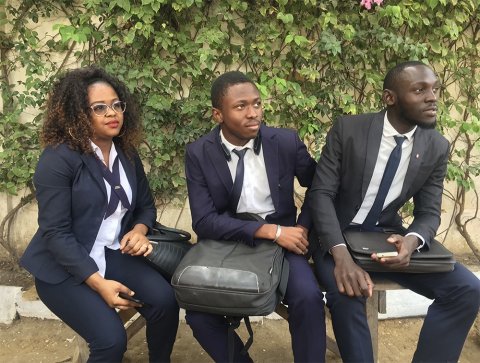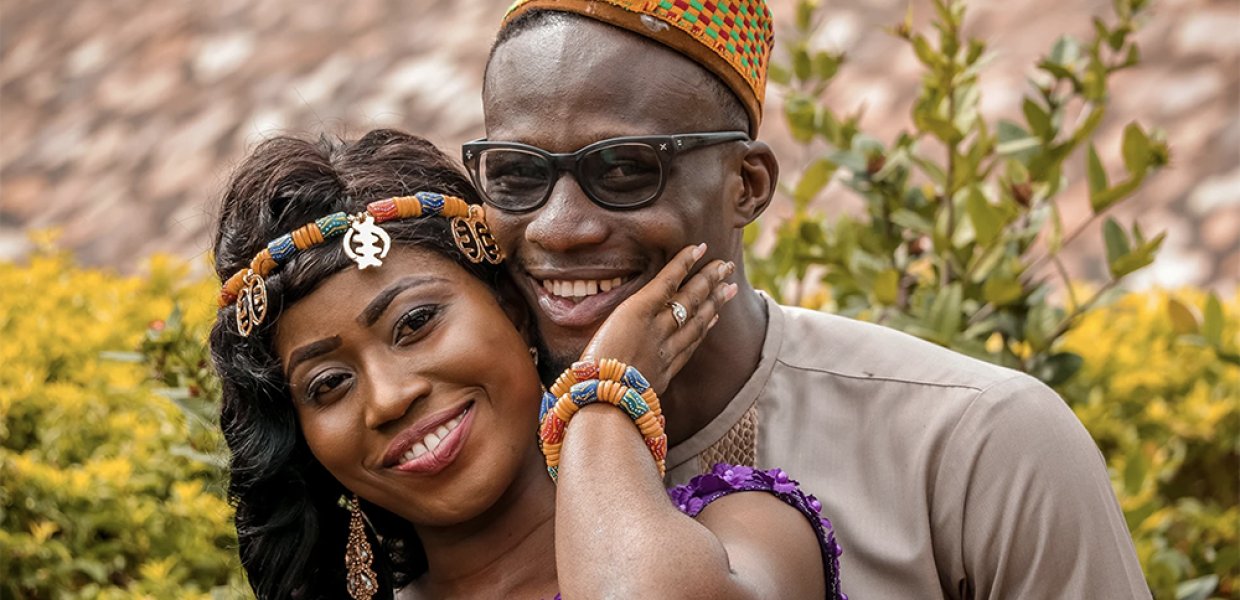A report released on Thursday by the USC Annenberg Norman Lear Center Media Impact Project reveals that Americans seldom see mentions of Africa or Africans on popular television shows or in the news; and when they do, the portrayals are often negative and stereotyped.
The Africa Narrative is a global initiative harnessing the power of the arts, media and entertainment, business, education and philanthropy to engage the world in new stories of modern Africa. The initiative is based at the Lear Center’s Media Impact Project at USC Annenberg School for Communication and Journalism, in partnership with CrissCrossGlobal, an international communications consultancy. The initiative will broaden awareness of the region and its 54 nations through research, communications campaigns and collaborations with partners from Africa, the U.S. and around the world. Africa in the Media is the inaugural research project, with an initial focus on measuring U.S. media depictions of the continent and their impact on U.S. attitudes and engagement with the region.
Although a 2015 global Pew survey revealed that Africans were among the world’s most optimistic about their economic prospects, Africans and experts of the region argue that Western news and entertainment media still focus predominantly on disease, poverty, corruption, famine, armed conflict and stories about Westerners who appear as saviors. This despite the fact that African innovation, entrepreneurialism, music, fashion, art and a new generation of creators, innovators and business leaders are increasingly making their mark on the world stage.
Recognizing that media can greatly influence the way people form opinions, The Africa Narrative seeks more balance, diversity and nuance in Africa storytelling that does justice to realities of the continent and its 54 countries. As a first step toward that goal, Africa in the Media aims to understand African depictions and ultimately their impact on African tourism, trade and investment.
“We believe that large-scale, data-driven media research like this is essential to understanding the role that media plays in shaping audience attitudes,” says Johanna Blakley, managing director of the Lear Center. “There are discernible trends in media representations, just as there are trends in fashion. This study captures the current picture of Africa. Its findings are intended to provide insights for American media makers and help inform their consideration of African storytelling.”
With support from the Ford Foundation, researchers at the Lear Center’s Media Impact Project conducted a major content analysis that involved some 700,000 hours of television news and entertainment and

1.6 million Twitter posts over the month of March 2018. These were monitored for mentions of “Africa,” “African,” or the names of any of the continent’s 54 nations. Content was analyzed for a range of factors designed to reveal not just the number of Africa mentions but also their content and tone. Partners from BrandsEye, a global opinion-mining company, analyzed the tweets for their sentiment. Results confirm the argument that Africa is mostly ignored and widely stereotyped in the media when it does appear.
“There is an emerging movement — often led by African diaspora entertainment figures — to bring authentic African storytelling to American and global audiences,” adds Michelle van Gilder of CrissCrossGlobal. “But clearly, there is opportunity for a much broader contribution in expanding African narratives.”
Social media is invaluable for obtaining unfiltered public opinions, says JP Kloppers, CEO of BrandsEye: “Unlike other public opinion research, social media data is unsolicited and accurately captures how people feel, without the bias of a questionnaire or a focus group moderator.”
Key findings from Africa in the Media report
Africa and Africans barely register on U.S. television
- Stories about Africa appeared infrequently on U.S. television: a mention appeared once in every five hours of TV programming. Viewers were seven times more likely to see references to Europe.
- Out of almost 700,000 hours of programming, there were only 25 major scripted storylines about Africa.
- Only 13% of entertainment storylines that mentioned Africa included an African character, and 80% of the roles were minor. When African characters did appear, 46% spoke 10 words or less.
- Only 31% of African characters were women.
- 20% of all unscripted entertainment mentions of Africa were on the game show Jeopardy!
Depictions of Africa are broadly negative
- Overall, viewers were more than twice as likely to see negative depictions of Africa than positive ones in major storylines about Africa.
- When references to Africa were not neutral, they were more likely to be negative than positive in both Twitter conversations and entertainment programming.
- Of 32 topics tracked across all TV programming ranging from animals and culture to travel and immigration, only three had more positive than negative mentions: history, music and sports.
- Most mentions of Africa (43%) appeared on national or local news. After politics (32%), crime garnered the most mentions (16%) while the topic of business and the economy accounted for just 8% of news coverage.
- Over one-third (35%) of African mentions in TV shows were about crime. Many of these stories were told on America’s most popular shows such as Law & Order: SVU and the NCIS franchises.
- Of the 25 major scripted storylines about Africa that appeared on television during March, 14 centered on crime.
- Most tweets about Africa shared or voiced reactions to published news media stories. The volume and topics of tweets closely aligned with the tenor of news coverage of Africa, indicating the influence of news on social media.
- Of the five topics tracked on twitter (animals, corruption, crime/terrorism, diaspora and poverty), crime/terrorism had the most mentions (8%) with South Africa and Nigeria the countries most associated with the topic.
- While two-thirds of Twitter mentions about poverty were negative in sentiment, the topic also had the highest volume of positive tweets, centered on successful efforts to address African poverty. Most of these tweets originated with nonprofits and NGOs working to eradicate poverty in the region.
Africa as a country
- 44% of TV shows and movies only mention “Africa,” with no reference to a particular country.
- On Twitter, “Africa” by far received the most mentions (27%) — more than any individual country.

Out of a continent of 54 countries, five nations grab the bulk of attention:
- Five countries — Egypt, South Africa, Kenya, Seychelles and Congo — accounted for almost half (49%) of all mentions of any African nation, although there is variation by type of content:
- TOP FIVE IN NEWS: Seychelles (16%), Egypt (9%), Kenya (9%), South Africa (8%) and Congo (7%) accounted for 50% of all mentions of any African nation in local and national news.
- TOP FIVE IN ENTERTAINMENT: South Africa (14%), Kenya (14%), Egypt (10%), Nigeria (10%) and Congo (6%) accounted for 53% of all mentions of any African nation in scripted & unscripted TV.
Black Panther and Africa
Researchers did not track every reference to the top-grossing film Black Panther, only those that accompanied a keyword related to “Africa.” Even with that restriction, coverage of Black Panther exceeded that of African travel, sports, education, health and environment in all programming. Black Panther’s fictional African homeland, Wakanda, would have placed fourth behind Egypt, South Africa and Kenya in our rankings of most mentioned countries. Viewers were equally likely to see Africa-related references to the film as they were to see coverage of Trump’s “s***hole” comment about Africa during that same time period.
Some shows get it right
Encouragingly, the research uncovered some rich sources of storytelling and identified African characters that have emerged in recent years in Hollywood scripted entertainment that counter stereotypes historically associated with Africans. These include the erudite Nigerian moral philosopher Chidi on NBC’s The Good Place; Dayana Mampasi, a Zimbabwean human rights lawyer turned CIA agent played by South African Pearl Thusi in Quantico, an ABC series that ran from 2015-2018, and Mina Okafor, the brilliant doctor of Fox’s The Resident portrayed by Guyanese-born Shaunette Renee Wilson.
The Africa Narrative offers five recommendations for content creators:
- Increase the number of stories that mine the rich and diverse cultures and histories of Africa — including in children’s programming — and develop more scripted content that doesn’t focus on crime.
- Include more African characters in stories and give them larger speaking parts.
- Make one-half of African characters female.
- Expand the focus from Egypt, South Africa, Kenya, Congo and Nigeria to the continent’s other 49 countries.
- Collaborate with content creators from Africa and its diaspora.
The Africa Narrative is an ongoing, multi-year effort. Building on initial support from the Ford Foundation, it will continue to conduct research, spearhead communications campaigns, and collaborate with private, public and non-profit partners to advance Africa storytelling and ultimately improve engagement with the continent. Join their mailing list to learn more about their work on The Africa Narrative and other projects of the Norman Lear Center Media Impact Project.
To read the full Africa in the Media full report, click here; to read a summary of the key findings, click here; for The Africa Narrative’s report on how President Trump’s “sh**hole” remark changed the conversation on Twitter, click here.
Contact: www.theafricanarrative.org; Twitter: @54Narratives and @MediaMetrics; Instagram @AfricaNarrative.
